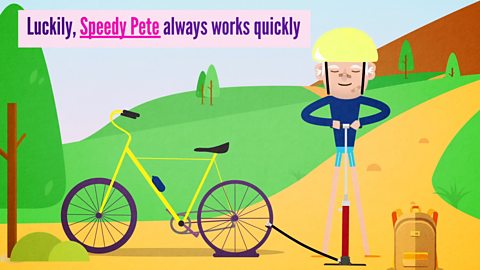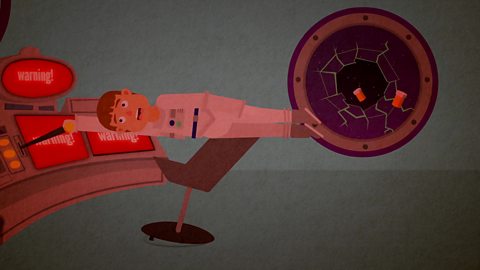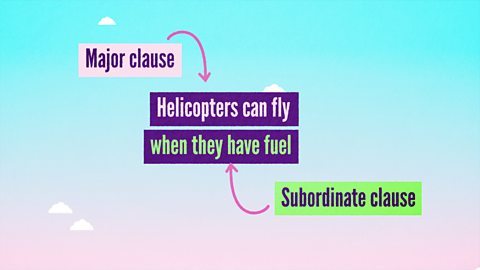Farmer Frank gets to grips with adverbs and adverbials.
Adverbs and Adverbials
Adverbs are words that modify verbs, adjectives or other adverbs.
‘Farmer Frank drives carefully.’
‘Carefully’ is an adverb describing ‘drives’. It tells us how Farmer Frank drives.
Most adverbs end with ‘ly’. Farmer Frank drives ‘carefully’, be if he didn’t care so much about safety he could also drive ‘carelessly’, ‘recklessly’ or ‘dangerously’.
Lots of adverbs end in ‘ly’, like ‘unfortunately’, but unfortunately, some of them don’t. For example, ‘Frank ‘always’ drives the red tractor.’ ‘Frank ‘never’ drives the blue tractor.’ ‘The blue tractor caught fire ‘once’ while Frank was driving it.’
Adverbs can also modify adjectives or even other adverbs.
For example, ‘Frank drives the bright red tractor.’ ‘Bright’ is an adverb but it doesn’t describe the verb, ‘drive’. It describes the adjective, ‘red’. It tells us the kind of red the tractor is. Another way to modify verbs, adjectives and adverbs is by using adverbials.
Adverbials are phrases that do the same job as adverbs. Whereas an adverb is a single word, like ‘carefully’, adverbials are entire phrases. While they work a little differently to adverbs, they still do the same job.
For example, ‘Bees scare Frank half to death.’ ‘Half to death’ is an adverbial, describing how bees scare Frank. So you could say ‘Frank is currently panicking.’ ‘Panicking’ is the verb and ‘currently’ is the adverb.
Or you could say ‘Frank is panicking right this second,’ if you wanted to use an adverbial. In this case, ‘right this second’.
Oh dear! Don’t get stung. Remember, adverbs are words that modify verbs, adjectives or other adverbs.
Adverbials are phrases that do the same job as adverbs.
Adverbs: they make a difference.
Video summary
In this film, what should have been a normal day’s harvesting, goes awry when dangerous driving leads Farmer Frank into a bees’ nest – luckily he learns about adverbs and adverbials along the way.
Teacher Notes
In small groups or with the whole class, students perform actions in the style of an adverb.
Teach students that adverbs describe the actions (verb) which makes their writing more interesting.
Students take a piece of fictional or creative writing that they have completed and rewrite a section of it using adverbial phrases to start each sentence before considering how it improves the effect of the work.
This clip is useful for teaching English at Key Stage 2 and Key Stage 3 and the equivalent in Northern Ireland, Wales and Scotland.
Subject. video
Speedy Pete gets to grips with the subject of a sentence.

Ellipsis. video
Space Cadet Carl gets to grips with the ellipsis.

Major and Subordinate Clauses. video
Monty Huntington-Smythe gets to grips with major and subordinate clauses.
